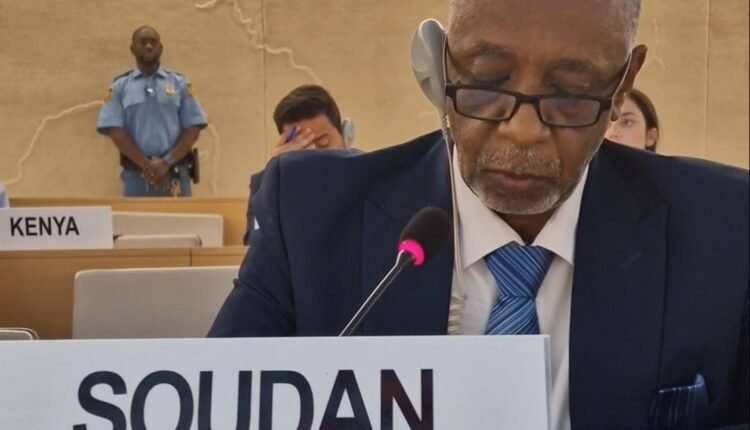Sudan Attorney General Addresses the Human Rights Council in Geneva

Attorney General – In charge , Yasser Al-Bukhari , Chairman of the National Committee to Investigate War Crimes and Violations by the Rapid Support Forces,
confirmed the capacity of Sudan’s national justice institutions to uphold the rule of law, achieve justice, redress victims, and ensure the principle of no impunity.
In his address on Tuesday before the Human Rights Council in Geneva, he called on the international community to implement the principle of complementarity, with national efforts being primary, and to provide the technical assistance that Sudan needs in areas of criminal investigations, as part of countries’ commitments to combating organised cross-border crime in all its forms.
Al-Bukhari urged neighbouring countries to facilitate the committee’s mission by allowing access to victims, witnesses, and stolen property and providing the necessary assistance to establish an international compensation fund and technical and logistical support, including advisory assistance.
The Attorney General condemned in the strongest terms the violations and crimes committed by the Rapid Support Forces since April 15, 2023, including killings, displacement, and systematic attacks that amount to genocide against the Masalit tribe in West Darfur, resulting in more than 5,000 deaths and over 8,000 injuries. He also condemned the massacre in Wad Al-Noura village in Al-Jazira state, which resulted in more than 227 deaths and over 150 injuries, and the blatant attacks in Sheikh Al-Samani village, resulting in 21 deaths and 15 injuries. Additionally, he highlighted the use of civilians as human shields by the rebellious militia, targeting unarmed civilians, especially women and children. More than 216 girls and women were subjected to physical violence, rape, forced pregnancy, and forced marriage, and over 6,000 children were forcibly recruited, with around 4,850 child soldiers killed in combat.
The Attorney General of Sudan outlined the methodology of the national committee in its investigations, adhering to fair trial principles, where courts ensured the rights of the accused, providing them with the right to legal representation and legal aid from the Ministry of Justice for those unable to hire a defence lawyer. A total of 12,470 criminal cases were filed, 346 arrest warrants were issued against leaders and members of the rebellious forces, and they were publicly notified. The rebellious forces were classified as a terrorist group under the law and relevant Security Council resolutions.
Additionally, around 65 criminal cases in which investigations were completed were referred to national courts, which issued judgments in some cases, resulting in convictions and acquittals in others.
The Attorney General appealed to the Human Rights Council and the international community to provide the necessary technical support to the national committee so that it could carry out its tasks fully, affirming the committee’s readiness to cooperate within the principle of complementarity.
Shortlink: https://sudanhorizon.com/?p=37

